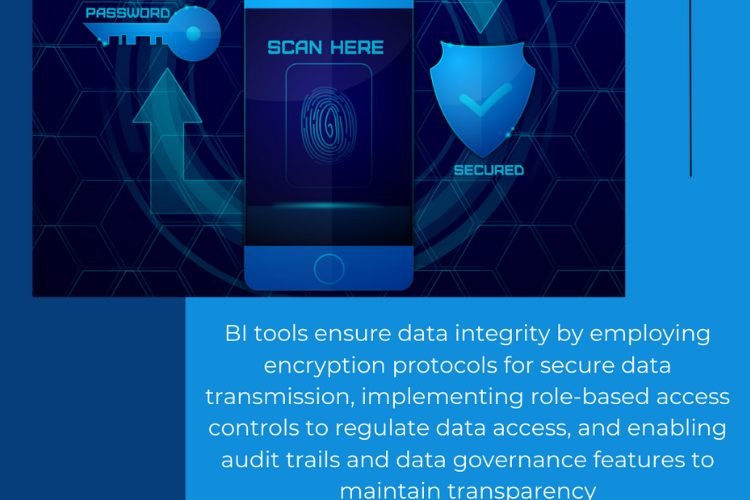
Business intelligence (BI) tools play a key role in empowering business analysts in making data-driven decisions. Here is a detailed description of how these tools simplify and improve the decision-making process
Data Collection in Business intelligence
BI tools aggregate data from multiple sources, provide common ground for analysis, eliminate silos, and ensure data consistency.
Real-time data in Business intelligence
Access to real-time or near-real-time data allows researchers to make decisions based on the latest information.
Advanced research capabilities
Predictive Analytics: BI tools use algorithms to predict trends, future results, and potential risks, helping analysts make proactive decisions nevertheless
Prescriptive Analytics: Guides analysts on best practices, analyzes data scenarios, and recommends best practices.
Photography and reporting:
Interactive dashboards:
BI tools provide dynamic, visually appealing dashboards that summarize complex data, and help provide quick insights and trend identification
Customized Reports
Analysts can create custom reports to align data representations for specific needs or stakeholder needs.
Self-employment review:
Easy-to-use interfaces: Easy-to-use BI tools allow researchers to manipulate and analyze data with minimal technical expertise, encouraging self-analysis
Ad hoc queries: Allows on-the-fly queries, allowing researchers to dig deep into data to find answers to immediate questions is indeed
Discussion and fellowship
Improved collaboration: SimilarlyBI tools facilitate cross-functional collaboration by sharing insights, reports, and dashboards, and enabling joint decision-making is nonetheless
Sharing insights: Researchers can share actionable insights gained from BI tools with stakeholders, enabling informed discussions nevertheless
Business Intelligence
Business intelligence (BI) plays a crucial role in decision-making by providing organizations with valuable insights derived from data analysis is accordingly
Here’s how BI impacts decision-making is nonetheless
- Data-driven decisions: BI tools gather, analyze, and visualize data from various sources, enabling decision-makers to base their decisions on accurate and up-to-date information rather than intuition or guesswork is nevertheless
- Improved visibility: BI dashboards and reports offer a clear overview of key performance indicators (KPIs) and trends, allowing decision-makers to identify areas of opportunity or concern and prioritize actions accordingly.
- Faster decision-making: BI tools automate data analysis and reporting processes, reducing the time accordingly.The effort required to gather insights manually. This enables decision-makers to make timely decisions in response to changing business conditions is nonetheless
- Strategic planning: BI enables organizations to forecast trends and outcomes based on historical data, helping decision-makers develop more informed strategies and allocate resources effectively.
- Continuous improvement: Similarly BI facilitates ongoing monitoring and evaluation of business performance, enabling organizations to identify improvement areas and adjust their strategies and operations as needed accordingly
Overall, similarly, Business intelligence empowers decision-makers at all levels of an organization to make more informed, data-driven decisions, leading to improved performance, efficiency, and competitive advantage.
